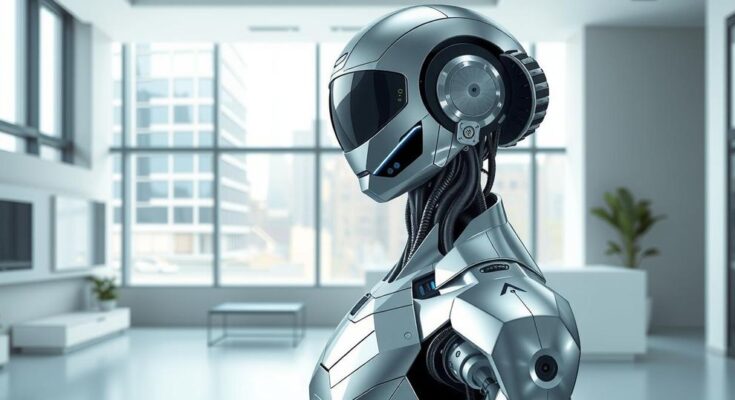Dobot, a Chinese robotics startup, has started preorders for its AI-powered humanoid robot, the Dobot Atom, priced at $27,500, with mass production expected by mid-year. This humanoid robot can perform several household tasks. Midea Group has also introduced a humanoid prototype, indicating a growing trend in robotic development in China, supported by government initiatives aimed at technological advancement.
A Chinese robotics startup, Dobot, has commenced preorders for its AI-powered humanoid robot, the Dobot Atom, priced at 199,000 yuan ($27,500). The company intends to initiate mass production by mid-year. This robot is capable of performing tasks such as preparing breakfast, pouring milk, toasting bread, and carrying boxes, as highlighted in a recent promotional video.
Standing at 153 centimeters tall and weighing 62 kilograms, Dobot was established in 2015 and has expanded its reach with offices in Japan, Germany, and the United States. Their preorder sales announcement was made on Tuesday.
In conjunction with this, Midea Group, a prominent home appliance company from Guangdong, unveiled a prototype of its own humanoid robot, which can perform actions like shaking hands, dancing, and applying screws. This information was reported by several Chinese media outlets.
Industry expert Ma Jihua commented on the launch of humanoid robots, stating it indicates that related products in China are rapidly transitioning into the early stages of mass production. He anticipates their prices will become comparable to television sets in the coming years.
Ma emphasized that “China offers a vast market for robotic applications, with immense potential in areas such as eldercare, children’s educational assistance and household chores.” This statement reflects the growing interest and investment in robotics.
In February, Chinese President Xi Jinping met with technology leaders, advocating for initiatives that promote the healthy and high-quality development of the private sector, as reported by Xinhua News Agency. Meanwhile, Premier Li Qiang’s work report earlier this month noted efforts to enhance self-reliance in science and technology while supporting the extensive application of large-scale AI models for intelligent robots and new energy vehicles.
In conclusion, the Dobot Atom represents a significant advancement in the burgeoning field of humanoid robotics in China, reflecting the country’s commitment to integrating AI technologies into everyday life. With competitive pricing and versatile functionalities, this innovation could enhance various sectors such as household chores and eldercare. Moreover, the governmental support for technological advancements signals a promising future for robotics in the Chinese market.
Original Source: english.kyodonews.net




